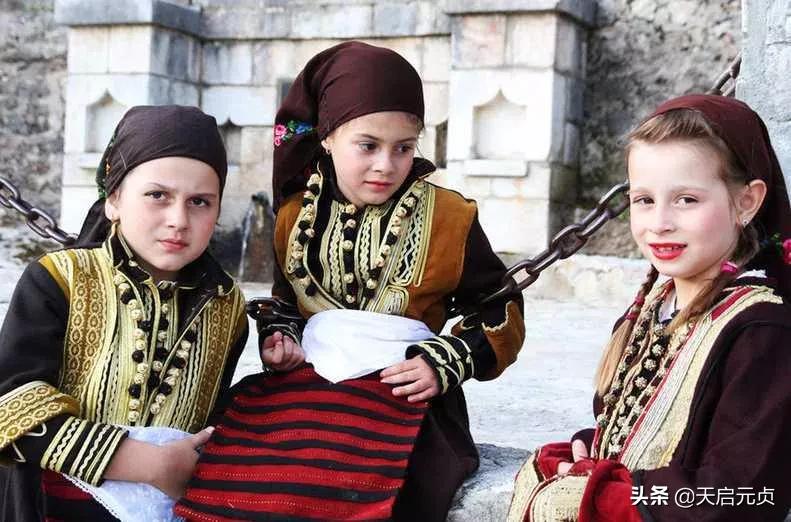In a way, the Macedonian nation is the youngest of all the peoples in Europe – the "Macedonians" were not recognized before the Second World War. They were Slavs liberated from the Turks in 1912, and from the last three decades of the 19th century, Serbia and Bulgaria began to argue over their ownership: Were they Serbs or Bulgarians? It was not until 1946 that the Yugoslav Federation resolved the issue.

The name Macedonia was first used by Philip II in the 4th century, who was the king of Macedonia and his son alexander the Great. Today's North Macedonia is not actually part of the Macedonian Kingdom, which Westerners generally call Inner Macedonia, but this is in the geographical sense.
Beginning in the 7th century, Inner Macedonia became the focal point of contention between Byzantium and Bulgaria. Once the capital of the First Kingdom of Bulgaria, Ohrid was the center of the Orthodox Church, and was of great significance to the religious beliefs of the Slavs, but also to the Serbs.
Around 1000, Byzantium conquered Bulgaria, but in the 12th century Bulgaria was restored, known as the Second Bulgarian Kingdom. This time, the rival became the Kingdom of Serbia, a state founded in 1346 by Stephen Duchamp, with the capital at Skopje (present-day the capital of North Macedonia). It was from this period that both Serbia and Bulgaria regarded the Slavs of inner Macedonia as their own people.
Between the 1680s and 1912, when ottoman Turkey occupied the area, Serbia and Bulgaria temporarily abandoned the idea.
Great Bulgarian State Concept
After 1870, Bulgaria took the lead in awakening. In 1878, Russia forced the Ottoman Empire to sign the Treaty of Santo Stefano, depicting a large Bulgarian state, including Inner Macedonia. However, this treaty only drew an illusory pie and was ultimately not implemented because of the opposition of the Western powers. But this became the framework of Bulgarian land recovery doctrine, and since then it has continuously instigated the return of the Inner Macedonia region to Bulgaria.
First, there were two Balkan wars from 1912 to 1913, in which Inner Macedonia was occupied by Serbia, and Bulgaria's vision was frustrated.
Bulgaria then joined the German camp in both world wars, fighting Serbia and Yugoslavia for the sake of Inner Macedonia. However, it went well at first, but after the war it all ended in failure.
North Macedonia in World War II
During the two world wars, Inner Macedonia did not have any special status in the Kingdom of Yugoslavia. The population of this place is recorded among Croat-Serbs at the time of registration. The mere fact that the differences between the Inner Macedonians are not recognized is that they do not want to give the Bulgarians any excuse. The Bulgarian side continued to support and help the rebellion in Inner Macedonia until the end of the 20th century.
Are they Bulgarians or Serbs?
In 1946, the Yugoslav Federation solved the problem: the Macedonians formed an independent people, and Macedonia became a union republic. In 1991, the Yugoslav Federation disintegrated, and after a referendum, the independent Republic of Macedonia was established. Although the referendum process was strongly opposed by Albania, it was adopted.
Greece, of course, reacted quickly, strongly opposing the EC's recognition of Macedonia, arguing that Macedonia had no right to use a name derived from Greece.
In 1993, Macedonia reached a compromise with Greece, known as the "former Yugoslav Republic of Macedonia", and was able to join the United Nations smoothly.
But it was not until 1996, on the basis of Macedonia's change of flag, that Greece and Macedonia recognized each other.
In 2019, in order to gain Greek support and join the European Union, Macedonia changed its name to "North Macedonia". Greece reluctantly agreed to this approach.
However, just when everything is ready, Bulgaria, which is a member of the European Union in 2020, is again not doing anything, and is clearly opposed to North Macedonia's accession to the European Union.
North Macedonia's problems have always been complex, and its official language, Macedonian, is derived from the Slavic dialect around Prilip, 70 kilometers south of Skopje. Although it is already a "new nation" state, North Macedonia is not a single nation state.
It includes a large Albanian-speaking minority, which is why Albania opposed its independence in 1991. In addition, there are Turkish-speaking residents. Moreover, in the Macedonian region of Greece there is the Hellenistic Macedonian (Slavic) minority.
Finally, the North Macedonian obsession in Bulgaria is hardly lost, given the historical roots.
Sandwiched between Bulgaria, Serbia, Albania, Greece, North Macedonia is really tangled.